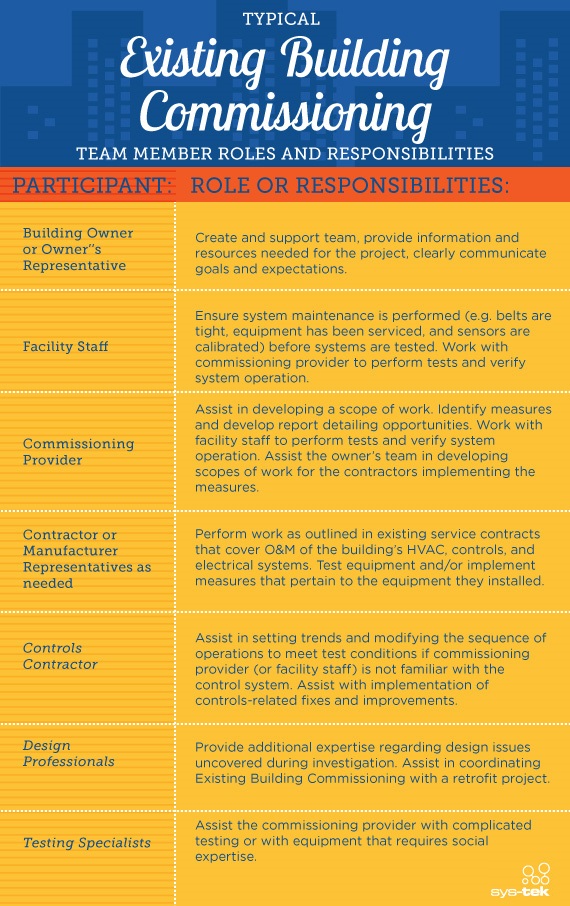Technical commissioning vs. process commissioning
Jan 16, 2014
When analyzing the energy efficiency and power status of a structure, whether it’s new or old, big or small, futuristically efficient or embarrassingly wasteful, there are two options that are widely regarded as the most prevalent among stakeholders. These are technical commissioning and process commissioning.
Process Commissioning
Process commissioning is undertaken by the preexisting contractor of a structure with a third-party commissioning expert or specialist serving merely as a witness. Because responsibility has been relinquished to a non-commissioning official, the test can sometimes be lacking in rigor and precision. The tasked contractor overseeing the commissioning also has a vested interest in having the building pass each test, allowing the commissioning endeavor as a whole to fall prey to his or her biases.
Process commissioning works via checklist and trusts the installed contractor to scrutinize and test equipment throughout the building, verifying that the pipes, ducts, controls, fans and electrical systems are up to snuff and not prone to breakage or outage. The outside commissioning expert plays a very limited role.
Technical Commissioning
This type of commissioning is more expensive than process commissioning, but with good reason. Instead of relying on the contractor to check off the completed duties and installations, an outside technical commissioning agent is hired and brought on site. The outside agent makes periodic site inspections of the structure to ensure that all building systems are working properly, and because of his more thorough knowledge of the subject matter, can do so more scrupulously than most contractors.
Though the higher price tag sometimes scares off building owners, those who shell out the extra dollars for technical commissioning are often in superior positions when it comes to making benchmarks down the road. Technical commissioning provides in-depth data that are invaluable when assessing longitudinal performance of various systems. Leakage percentages, air flow, electrical efficiency, generator responses and many other measurements are exhaustively interrogated out of the system and stored. Performance can be plotted over time and thus deficiencies can be pinpointed and improved. Because of this, technical commissioning is almost always worth the investment.
At sys-tek, we believe that technical commissioning is the only type of commissioning. Our technical commissioning agents are trained investigators who, unlike a process commissioning agent who simply spot checks and assumes, ensure that all problems of the building have been caught. For more information, contact sys-tek at 816-229-9009.








